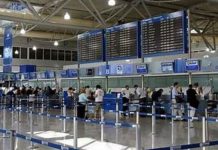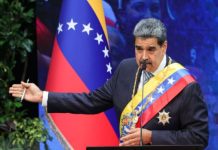NATO‘s head has warned Russia and Belarus against threatening the alliance’s allies, following the forced landing of a passenger plane within the EU by Belarusian authorities, in comments published on Sunday.
“We are of course ready, in an emergency, to protect and defend any ally against any kind of threat coming from Minsk and Moscow,” NATO Secretary-General Jens Stoltenberg told the Welt am Sonntag newspaper.
“We are vigilant and we are following what is happening in Belarus very closely,” he said.
Belarus is becoming “more and more dependent” on Russia, he added.
Stoltenberg said NATO was seriously concerned about the closer cooperation between Moscow and Minsk in recent months. “We have had to learn in the past that Russia has massively violated the territorial integrity of states such as Ukraine, Georgia and Moldova,” he said.
He did not want to speculate too much, Stoltenberg said, noting, “NATO is a defensive alliance.”
Lithuania, Latvia and Poland, all members of NATO, share borders with Belarus.
Two weeks ago, Belarusian President Alexander Lukashenko forced a Ryanair commercial flight between two EU capitals, Athens and Vilnius, to make an emergency landing in Minsk.
Dissident journalist Roman Protasevich and his girlfriend Sofia Sapega, passengers on the plane, were arrested and are being held in custody.
While the EU responded with sanctions on Belarus, Russian President Vladimir Putin hosted Lukashenko for talks and said Moscow would support Belarus with 500 million dollars in credit.
Putin also underlined his continuing support for Lukashenko in his confrontation with the West.
Stoltenberg also said that the situation in Belarus would be discussed at a NATO summit in Brussels due to be held in a week, where attendees will include US President Joe Biden and German Chancellor Angela Merkel.
He said the current partnership agreement (PFP) with Belarus had recently been significantly scaled back and that this would continue to be reviewed.
NATO is meanwhile pursuing a two-pronged approach with Russia, consisting of deterrence and dialogue, he said, adding, “we are sticking with that.”
NATO must remain in dialogue “with our neighbour Russia” about arms control and other military and political challenges, particularly in difficult times, he said.
“If we don’t talk to each other, we can neither settle our disputes nor improve mutual understanding.”

















